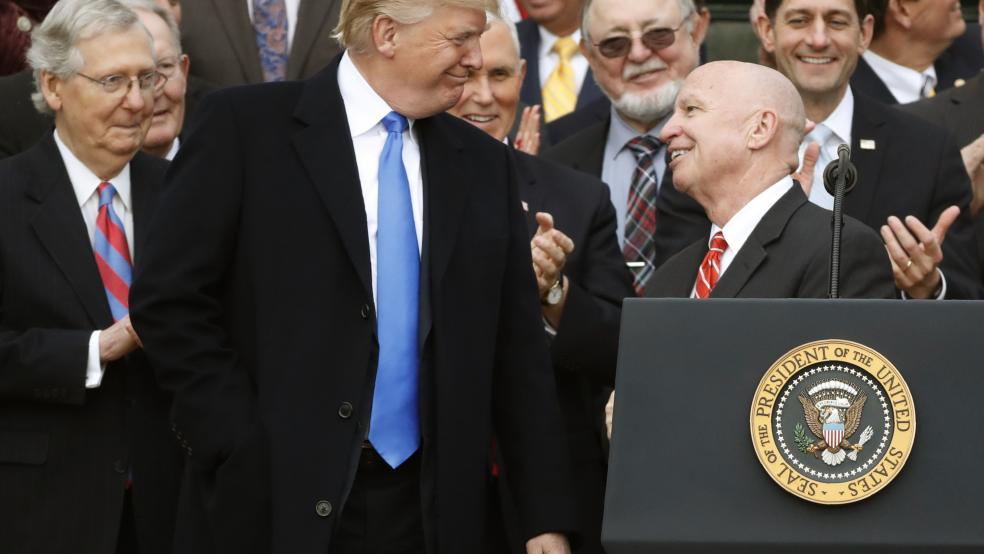Friday’s GDP report showed that the economy grew at a healthy 3.5 percent annual rate from July through September, extending one of the strongest stretches in recent years — and yet it also reinforced expectations that a slowdown is coming.
Many analysts expect growth to drop below 3 percent in the fourth quarter and cool even further in 2019. “We think U.S. growth may have just peaked,” Michael Gapen, chief U.S. economist for Barclays Capital, told The Wall Street Journal.
Those forecasts of a slowdown ahead — meaning more tepid growth, not a recession — are premised on a few factors:
- Consumers may have ramped up their spending in the wake of last year’s GOP tax cuts, but the rise is likely to fade over time.
- Similarly, the stimulus from this year’s congressional deal to increase outlays by $300 billion over two years is also likely to fade after fiscal 2019 ends next September — unless lawmakers set aside concerns about the rising deficit and once again bust through spending caps.
- After posting strong growth in the first quarter of 2018, business investment slowed to just 0.8 percent growth last quarter (or 1.7 percent excluding oil and gas), undermining the argument by proponents of the tax cuts that they would unleash a sustained increase in corporate spending. “Since businesses hate few things more than uncertainty, the prospect of an escalating trade war could also be weighing on investment, as executives hold off on commitments to major new outlays,” The Washington Posts’ Tory Newmyer notes.
“If you put all this together,” writes Matt O’Brien in The Washington Post, “you get a picture of an economy that’s growing at around 3 percent right now because of all the short-term stimulus it’s getting, but will soon go back to the 2 to 2.5 percent it was at before because that stimulus isn’t changing companies' long-term behavior like the Trump administration thought it would.”
Against that third quarter backdrop, the National Association for Business Economics on Monday delivered some more disappointing news for supporters of the tax cuts: In a survey, 81 percent of the groups’ members said that the 2017 tax law has not caused their firms to change hiring or investment plans, up from previous surveys, according to Politico’s Morning Tax. NABE surveyed 127 members from September 26 to October 11. (Politico adds, though, that 15 percent of NABE members in goods-producing industries reported accelerated hiring at their firms, 38 percent reported accelerated investment and 38 percent reported redirecting hiring and investment toward the U.S.)
“The 2017 Tax Cuts and Jobs Act has not broadly impacted hiring and investment plans at panelists’ firms, although panelists from the goods-producing sector do report some incidence of increased investments, and a shift toward hiring and investments from abroad to the U.S.,” NABE Business Conditions Survey Chair Sara Rutledge said in a statement.
It's still far too soon to say definitively that the tax cuts aren’t working, or won’t in the future. The effect of the tax cuts will take years to fully play out, economists say. For now, though, it sure looks like the U.S. economy is experiencing the temporary sugar rush so many economists predicted rather than the structural changes tax-cutters promised.





